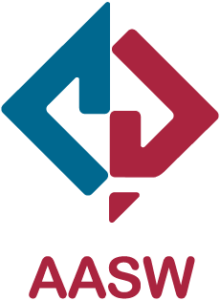Respondents FAQs
- Home
- »
- About AASW
- »
- Ethics & Standards
- »
- Making a Complaint
- »
- Respondents FAQs
Respondents Frequently Asked Questions
How will a Respondent be made aware of a complaint being made against them?
Complaints which have been assessed as being within the jurisdiction of the AASW By-Laws on Ethics 2025 will have a Notice of Complaint prepared for the Respondent by the AASW Ethics Office. Respondents will be informed of the complaint through a Notice of Complaint being sent to them via email or post.
The Notice of Complaint will contain:
- the complaint items,
- the alleged breaches against the AASW Code of Ethics,
- an outline of what their response can contain,
- the probable outcomes of a complaint,
- the deadline for their response, and
- contact details of the Ethics Office.
What information can be submitted in response to a complaint?
When responding to a complaint, Respondents are required to provide contextual information that addresses each allegation within the complaint against them. The response can include any information believed to be relevant to the allegations outlined in the Notice of Complaint.
Any submission should only include information that is legally able to be shared with the AASW. The information provided must pertain to and address each individual allegation.
Evidence including case notes, clinical assessments, reports, or health records (for example) cannot be submitted.
As per section 6.5.5 of the AASW By-Laws on Ethics 2025, the Respondent must provide a written response to the complaint and any supporting documentation they wish to rely on within fifteen (15) business days of receipt of the Notice of Complaint.
Does the AASW Ethics Office provide assistance to Respondent’s responding to a complaint?
No. The AASW is unable to provide advice or assistance to Respondents preparing their response to a Notice of Complaint. Any questions relating to the Ethics Complaint Management Process (ECMP) can be directed to [email protected].
Is the ECMP a legal proceeding?
The ECMP is not a legal proceeding, and the parties are not bound by the rules of evidence. While Respondents may engage a lawyer for assistance, the AASW Ethics Office does not liaise with legal representatives directly.
Please note that Respondents/members who are party to and seeking legal advice in relation to their AASW Ethics Complaint Management Process complaint are unable to be referred to an AASW legal partner as this would constitute a conflict of interest.
What can a Respondent expect after they have responded to a Notice of Complaint?
The complaint will be assigned to a Case Reviewer, who will be in contact with all parties to the complaint once the case has progressed in the queue. Respondents will have the opportunity to provide further information to their response submission if they feel it contributes to the complaint during the case review process.
How long will the ECMP take?
Providing an exact timeframe on the resolution of the ECMP is not possible. Each complaint is reviewed with due diligence, is dependent on information from several sources as well as the Ethics Council meeting schedule and as a result, can take approximately 12-18 months to complete.
Please note that the Ethics Office is responsible for the receipt and review of a large volume of complaints and notification matters and processes complaints in the order of date at which they are received.
What are the stages of the ECMP process?
The ECMP consists of the following stages in reviewing complaints received about AASW members:
Stage 1: AASW Ethics Office Review
Stage 2: Case Review
Stage 3: Ethics Council Review & Decision
Stage 4: Formal Resolution (see possible outcomes in next question below)
Stage 5: Ethics Council Review
Stage 6: AASW Board of Directors Decision (if applicable).
What can a Respondent expect at the completion of the Case Review?
The Case Reviewer will prepare a report containing recommendations for the consideration of the Ethics Council. While it is not possible for the AASW Ethics Office to determine what these will be, possible outcomes of the ECMP include:
Option A: Informal Resolution (Conciliation or Mediation)
Option B: Formal Resolution (Hearing Panel and if applicable, Appeal Panel).
Can I talk to the Complainant about the complaint during the ECMP?
No. As per the AASW-By-Laws-on-Ethics-2025, section 5.5:
In relation to complaints, contact between the parties as set out in clause 5.5 (i) and (ii), and must be adhered to by the Complainant and Respondent.
- The Respondent is not permitted to contact the Complainant/s or their Representative, directly, regarding the complaint, unless specifically permitted to do so under these By-Laws.
- The Respondent and the Complainant or their Representative must not approach any officeholder of the AASW in relation to the complaint outside of the permitted processes.
- Should the Respondent attempt to make any contact as described, or breach the Confidentiality Agreement, then that behaviour can be included in the complaint, or dealt with as a new complaint, under these By-Laws.
- Should the Complainant attempt to make any contact as described, or breach the Confidentiality Agreement, the AASW reserves its right to immediately dismiss the complaint.
Who can I contact with questions about the ECMP process?
Enquiries relating to the ECMP process can be sent to the AASW Ethics Office by writing to: [email protected].

